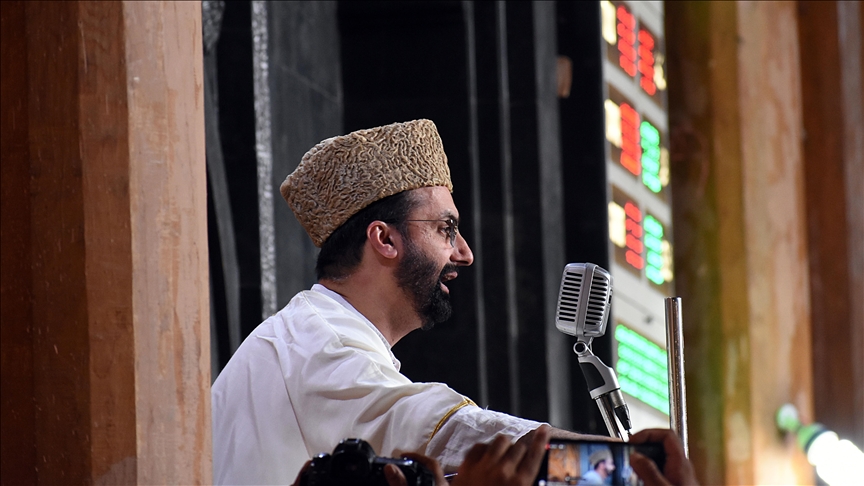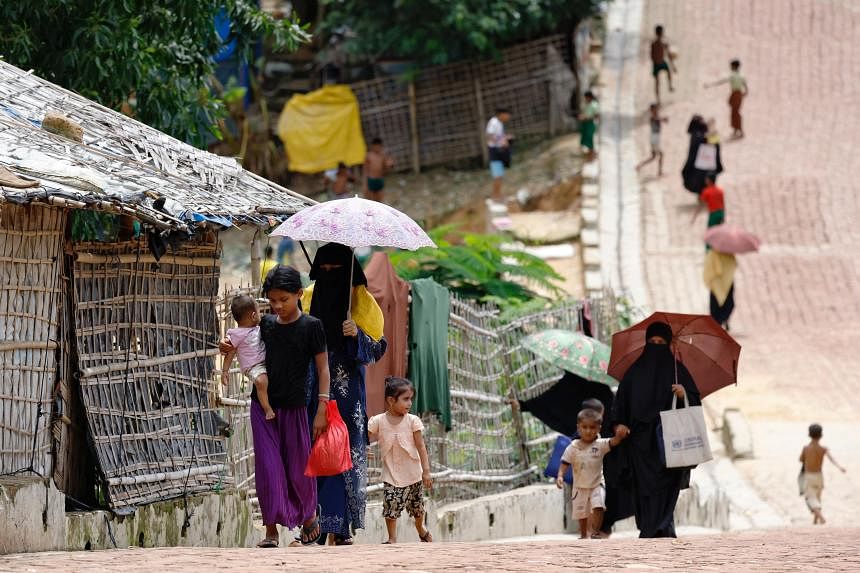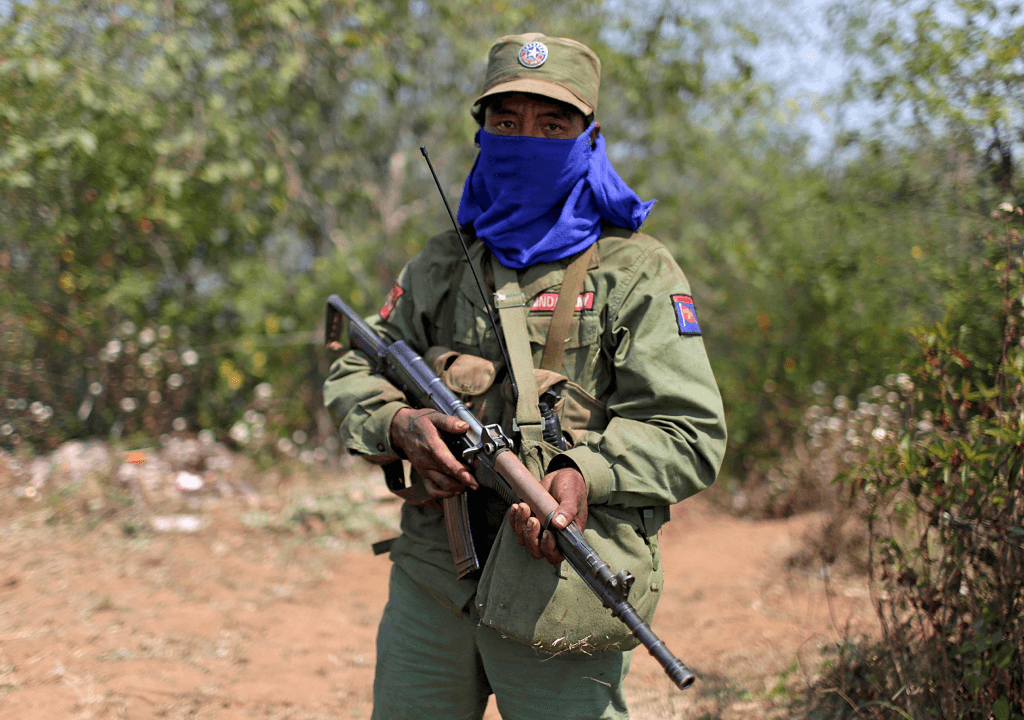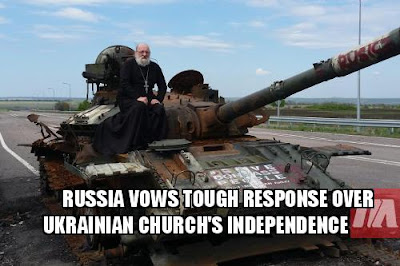‘War has come to us’: Russia forced to evacuate tens of thousands from border region amid struggle to contain Ukrainian blitz
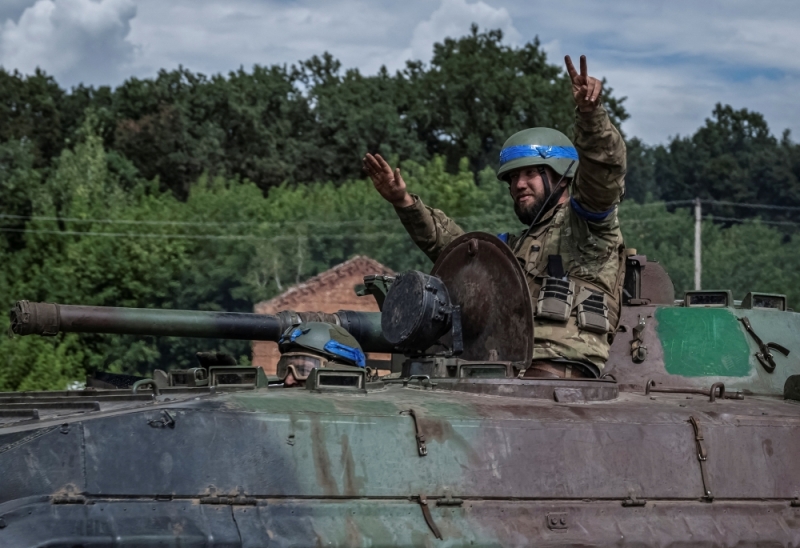
Ukrainian servicemen ride a BMP-1 infantry fighting vehicle, amid Russia's attack on Ukraine, near the Russian border in Sumy region, Ukraine August 10, 2024
Sunday, 11 Aug 2024
MOSCOW, Aug 11 — Russia said Saturday it had evacuated tens of thousands of people from its border region and launched a “counter-terror operation” as it struggled to contain a major Ukrainian incursion.
At the same time, Moscow warned that the fighting in Russia’s western Kursk region was endangering a nuclear power plant.
Ukrainian units stormed across the border on Tuesday morning in what so far has been the largest and most successful such offensive by Kyiv in the two-and-a-half-year conflict.
Its troops have advanced several kilometres forcing Russia’s army to rush in reserves and extra equipment — though neither side has given precise details on the forces committed.
Local officials detailed the scale of civilian evacuations from towns and villages close to the combat zone.
“More than 76,000 people have been temporarily relocated to safe places,” the state-run TASS news agency quoted an official from the regional emergency situations ministry as saying at a press briefing on Saturday.
Emergency aid has been ferried into the border area and extra trains to the capital Moscow have been put on for people fleeing the fighting.
“The war has come to us,” one woman — who declined to give her name — told AFP after arriving at a Moscow train station on Friday.
Late on Saturday however, air raid sirens sounded in the Ukrainian capital Kyiv.
AFP journalists noted at least two flashes in the night sky, and Ukraine’s air force said five other regions were being attacked by drones.
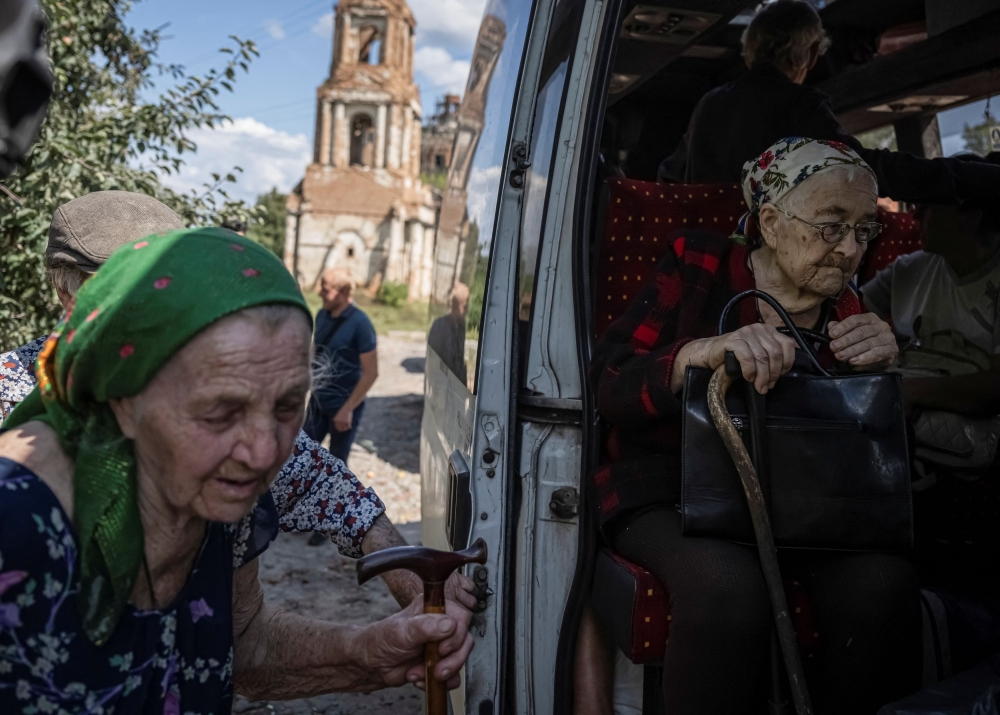
Local residents from a village near the Russian border board a bus during an evacuation to Sumy due to Russian shelling, amid Russia's attack on Ukraine, in Sumy region, Ukraine August 9, 2024. — Reuters pic
Mass evacuations
Kyiv has maintained a strict operational silence on the offensive and for several days Ukrainian President Volodymyr Zelensky made only oblique references to the fighting there.
But in Saturday’s evening address, Zelensky referred to army chief Oleksandr Syrsky’s briefings “on the frontline and our actions and pushing the war into the aggressor’s territory”.
Thanking the soldiers involved, he added: “Ukraine is proving that it can really bring justice and guarantees exactly the kind of pressure that is needed — pressure on the aggressor.”
Russia’s army on Saturday confirmed it was still fighting the Ukrainian incursion for a fifth day.
It said Kyiv’s forces had initially crossed the border with around 1,000 troops, 20 armoured vehicles and 11 tanks, though it claimed on Saturday to have destroyed five times that much military hardware so far.
‘Unprecedented’
Russia’s national anti-terrorism committee said late Friday it was starting “counter-terror operations in the Belgorod, Bryansk and Kursk regions” to protect citizens.
The Belgorod and Bryansk regions bordering Ukraine have also been hit hard by shelling and aerial attacks since Russia launched its offensive in February 2022.
Security forces and the military have sweeping emergency powers during “counter-terror” operations.
Movement is restricted, vehicles can be seized, phone calls can be monitored, areas are declared no-go zones, checkpoints introduced, and security is beefed up at key infrastructure sites.
On the streets of Moscow Saturday, AFP journalists found support for tough measures to quell the response, but also some anger at how the incursion had been allowed to happen.
“We have to take all the steps that are possible in such a situation,” said Alexander Ilyin, a 42-year-old architect.
The anti-terrorism committee said Ukraine had mounted an “unprecedented attempt to destabilise the situation in a number of regions of our country”.
Russia on Friday appeared to hit back, launching a missile strike on a supermarket in the east Ukrainian town of Kostyantynivka that killed at least 14 people.
Another three were killed in the northeastern Kharkiv region on Saturday, local officials said.
Ukraine also said it had had to evacuate 20,000 people from the Sumy region, just across the border from Kursk.
While neither side has provided precise details on Ukraine’s incursion, Russia’s defence ministry on Saturday said it had hit some Ukrainian positions as far as 10 kilometres (six miles) from the border.
It also reported hitting Ukrainian troops in areas 30 kilometres apart — an indication as to the breadth, as well as depth of Ukraine’s advance.
Belarus, Russia’s close ally, on Saturday ordered military reinforcements — ground troops, air units, air defence and rocket systems — to be deployed closer to its border with Ukraine in response to Kyiv’s incursion, its defence ministry said.
‘Particularly effective’
Russia’s nuclear agency on Saturday warned of a “direct threat” to the nearby Kursk nuclear power station, less than 50 kilometres from the fighting.
“The actions of the Ukrainian army pose a direct threat” to the Kursk plant in western Russia, state news agencies cited its atomic energy agency Rosatom as saying.
On Friday, the head of the International Atomic Energy Agency, expressing similar concerns, had called for “maximum restraint”.
Zelensky’s comments Saturday notwithstanding, Ukraine’s leaders have remained tight-lipped on the operation.
The United States, Kyiv’s closest ally, said it had not been informed of the plans in advance.
Elsewhere on the frontline, Ukraine on Saturday reported the lowest number of “combat engagements” on its territory since June 10.
That could be a sign its incursion is helping to relieve pressure on other parts of the sprawling frontline where Moscow’s troops had been advancing. — AFP
Sunday, 11 Aug 2024
MOSCOW, Aug 11 — Russia said Saturday it had evacuated tens of thousands of people from its border region and launched a “counter-terror operation” as it struggled to contain a major Ukrainian incursion.
At the same time, Moscow warned that the fighting in Russia’s western Kursk region was endangering a nuclear power plant.
Ukrainian units stormed across the border on Tuesday morning in what so far has been the largest and most successful such offensive by Kyiv in the two-and-a-half-year conflict.
Its troops have advanced several kilometres forcing Russia’s army to rush in reserves and extra equipment — though neither side has given precise details on the forces committed.
Local officials detailed the scale of civilian evacuations from towns and villages close to the combat zone.
“More than 76,000 people have been temporarily relocated to safe places,” the state-run TASS news agency quoted an official from the regional emergency situations ministry as saying at a press briefing on Saturday.
Emergency aid has been ferried into the border area and extra trains to the capital Moscow have been put on for people fleeing the fighting.
“The war has come to us,” one woman — who declined to give her name — told AFP after arriving at a Moscow train station on Friday.
Late on Saturday however, air raid sirens sounded in the Ukrainian capital Kyiv.
AFP journalists noted at least two flashes in the night sky, and Ukraine’s air force said five other regions were being attacked by drones.

Local residents from a village near the Russian border board a bus during an evacuation to Sumy due to Russian shelling, amid Russia's attack on Ukraine, in Sumy region, Ukraine August 9, 2024. — Reuters pic
Mass evacuations
Kyiv has maintained a strict operational silence on the offensive and for several days Ukrainian President Volodymyr Zelensky made only oblique references to the fighting there.
But in Saturday’s evening address, Zelensky referred to army chief Oleksandr Syrsky’s briefings “on the frontline and our actions and pushing the war into the aggressor’s territory”.
Thanking the soldiers involved, he added: “Ukraine is proving that it can really bring justice and guarantees exactly the kind of pressure that is needed — pressure on the aggressor.”
Russia’s army on Saturday confirmed it was still fighting the Ukrainian incursion for a fifth day.
It said Kyiv’s forces had initially crossed the border with around 1,000 troops, 20 armoured vehicles and 11 tanks, though it claimed on Saturday to have destroyed five times that much military hardware so far.
‘Unprecedented’
Russia’s national anti-terrorism committee said late Friday it was starting “counter-terror operations in the Belgorod, Bryansk and Kursk regions” to protect citizens.
The Belgorod and Bryansk regions bordering Ukraine have also been hit hard by shelling and aerial attacks since Russia launched its offensive in February 2022.
Security forces and the military have sweeping emergency powers during “counter-terror” operations.
Movement is restricted, vehicles can be seized, phone calls can be monitored, areas are declared no-go zones, checkpoints introduced, and security is beefed up at key infrastructure sites.
On the streets of Moscow Saturday, AFP journalists found support for tough measures to quell the response, but also some anger at how the incursion had been allowed to happen.
“We have to take all the steps that are possible in such a situation,” said Alexander Ilyin, a 42-year-old architect.
The anti-terrorism committee said Ukraine had mounted an “unprecedented attempt to destabilise the situation in a number of regions of our country”.
Russia on Friday appeared to hit back, launching a missile strike on a supermarket in the east Ukrainian town of Kostyantynivka that killed at least 14 people.
Another three were killed in the northeastern Kharkiv region on Saturday, local officials said.
Ukraine also said it had had to evacuate 20,000 people from the Sumy region, just across the border from Kursk.
While neither side has provided precise details on Ukraine’s incursion, Russia’s defence ministry on Saturday said it had hit some Ukrainian positions as far as 10 kilometres (six miles) from the border.
It also reported hitting Ukrainian troops in areas 30 kilometres apart — an indication as to the breadth, as well as depth of Ukraine’s advance.
Belarus, Russia’s close ally, on Saturday ordered military reinforcements — ground troops, air units, air defence and rocket systems — to be deployed closer to its border with Ukraine in response to Kyiv’s incursion, its defence ministry said.
‘Particularly effective’
Russia’s nuclear agency on Saturday warned of a “direct threat” to the nearby Kursk nuclear power station, less than 50 kilometres from the fighting.
“The actions of the Ukrainian army pose a direct threat” to the Kursk plant in western Russia, state news agencies cited its atomic energy agency Rosatom as saying.
On Friday, the head of the International Atomic Energy Agency, expressing similar concerns, had called for “maximum restraint”.
Zelensky’s comments Saturday notwithstanding, Ukraine’s leaders have remained tight-lipped on the operation.
The United States, Kyiv’s closest ally, said it had not been informed of the plans in advance.
Elsewhere on the frontline, Ukraine on Saturday reported the lowest number of “combat engagements” on its territory since June 10.
That could be a sign its incursion is helping to relieve pressure on other parts of the sprawling frontline where Moscow’s troops had been advancing. — AFP
Russia takes emergency measures in border regions after Ukraine incursion
Moscow’s “counterterrorism measures” follow Kyiv’s biggest cross-border ground offensive since Russia’s invasion

Moscow announced “counterterrorism measures” late Friday in three regions bordering Ukraine — Bryansk, Belgorod and Kursk — following cross-border incursions by Kyiv's forces.
Ukraine is continuing to push into Russian territory after launching its surprise incursion across the border earlier this week, according to national media. The cross-border raid by Ukrainian forces its Kyiv's largest in the two-and-a-half years of conflict after Moscow launched its all-out invasion in early 2022.
"The Kyiv regime made an unprecedented attempt to destabilize the situation in a number of regions of our country,” Russia’s National Antiterrorism Committee said in a statement justifying the operation “to ensure the safety of citizens and stop the threat of terrorist acts.”
Moscow has sent reinforcement troops and military equipment to the regions, including tanks, rocket launchers and aviation units to halt Ukraine's advances, according to reports.
Kyiv’s Western allies, sometimes reluctant about any attack inside Russian territory, have made no signs of opposing Kyiv’s military moves across the border. The U.S. on Friday announced an additional $125 million (€114 million) in weapons to assist Ukraine’s military operations against Russia, including anti-tank missiles and ammunition.
Ukrainian President Volodymyr Zelenskyy has so far refrained from commenting specifically on the incursion into Russia. “I thank each of our warriors — those who are destroying the Russian occupiers, holding the frontline, and ensuring that Ukraine remains on the world map,” Zelenskyy posted on X on Friday.
A roll of the dice Ukraine’s surprise incursion has opened a front on Russian territory, but the operation carries significant risks
Source: Meduza
CLICK TO SEE INTERACTIVE MAP
Like our earlier reports on the combat situation in Ukraine, this article takes stock of the recent developments on the battlefield based on open-source information. Meduza has condemned Russia’s invasion of Ukraine from the very start, and our detailed military analyses are part of our commitment to objective reporting on a war we firmly oppose.
Our map is based exclusively on open-source photos and videos, most of them posted by eyewitnesses on social media. We collect available evidence and determine its geolocation markers, adding only the photos and videos that clear this process. Meduza doesn’t try to track the conflict in real time; the data reflected on the map are typically at least 48 hours old.
Key updates as of August 10, 2024
On August 6, several Ukrainian brigades, supported by air defense systems and a drone operator regiment, crossed the Russian border into the Kursk region at points both west and east of the Sudzha border crossing. They captured the crossing itself the next day, with dozens of border guards surrendering. Ukrainian troops encountered only weak resistance from Russia’s “border cover regiments” — light infantry units formed last year to defend against raids by Ukrainian special forces. These regiments, partially composed of non-mobilized conscripts, weren’t equipped to face regular troops numbering in the thousands and armed with heavy equipment. As a result, the Ukrainian Armed Forces (AFU) were able to advance 10 kilometers (6.2 miles) or more on the first day of the offensive in two directions west of the city of Sudzha.
In the first days of the offensive, it quickly became evident that Russia didn’t have sufficient reserve troops in the Kursk region to repel such an attack — something Ukrainian intelligence likely knew in advance. The Kursk region falls under the responsibility of the Russian army’s “Sever” operational group, which has been embroiled in heavy fighting in the northern part of Ukraine’s Kharkiv region since May 2024. There were indications that a reserve force for the group, the 44th Army Corps (officially created in 2024 in Luga, Leningrad region), was being finalized in the Kursk region. Throughout the summer, pro-war Telegram channels posted recruitment ads for the corps. However, it appears that the brigades and division intended to form its backbone were never fully established, and some of the newly formed units were likely sent to the Kharkiv region to reinforce “Sever,” which had suffered heavy losses.
The AFU attempted to push “Sever” troops out of the Kharkiv and Vovchansk areas and back across the border, aiming to free up eight to 10 brigades that the Ukrainian command had deployed there in May as reinforcements. However, this effort was unsuccessful. Ukrainian intelligence, though, seems to have identified vulnerabilities along Russia’s border in other areas. This opened the door for an operation that, according to the Ukrainian command’s plan, is likely intended to force “Sever” to ease its pressure near Kharkiv, potentially enabling the AFU to push the group back into Russia.
However, it’s clear that the ideas behind this operation are somewhat shaky, and the operation itself carries significant risks. The brigades involved were pulled from the front lines during the spring and summer to be replenished with personnel and equipment. Meanwhile, on the front lines — especially in central and southern Donbas — the AFU is clearly facing a severe shortage of troops, forcing them to slowly retreat. Russian forces in Donbas have moved closer to logistics hubs that are crucial to the Ukrainian army’s defense. If the AFU fails to secure a foothold in the Kursk region, exploit the crisis in the “Sever” group to defeat it near Kharkiv, and then quickly redeploy freed-up reserves to Donbas, this could lead to a major defeat for the Ukrainian army in the east of the country.
Meduza has condemned Russia’s invasion of Ukraine from the very start, and we are committed to reporting objectively on a war we firmly oppose. Join Meduza in its mission to challenge the Kremlin’s censorship with the truth. Donate today.
Kursk region, Russia
After breaking through west of Sudzha and capturing the village of Sverdlikovo, the AFU formed two groupings. One advanced northwest, likely intending to secure the newly established foothold from the Korenevo side, where Russian forces might gather for a counterattack. On the first day of the incursion, the AFU captured several villages west of Sverdlikovo: Zelenyi Shlyakh, Leonidovo, Lyubimovka, and Novoivanovka. They either did not plan to advance further or were halted by Russian airstrikes and the arrival of initial reserves. In any case, the AFU lost several pieces of equipment here.
The second grouping bypassed Sudzha from the west, occupying the western outskirts of the city and quickly reaching the village of Malaya Loknya. From there, part of the troops — mainly mobile light infantry groups — turned east, encircling Sudzha from the north. They reached the Sudzha–Kursk highway, where they attempted to cut off supplies to Russian troops (border guards and infantry from the same “border cover regiments”).
By the end of the third day, judging by all available open-source videos, the AFU had gained control of the western outskirts of Sudzha (Goncharovka, Zaoleshenka) but not the city center. The highway to Kursk wasn’t entirely blocked physically, but it was under fire control (including small arms fire) and monitored by kamikaze drones.
The AFU’s “western” grouping held its positions along the Lyubimovka–Novoivanovka line, while the “northern” grouping operated north of Malaya Loknya. The pause in the offensive appears to be due less to increased resistance from Russian reserves and more to the advancing troops becoming separated from their rear lines, which are still on Ukrainian territory. The artillery and drones used by Ukrainian forces have an effective range of about 10 to 15 kilometers (about six to nine miles), which is exactly how far they’ve advanced from the border to the northwest and north. On August 9, they began moving artillery into the Kursk region (judging by open-source videos, several units were hit by Russian airstrikes and long-range Lancet kamikaze drones). This indicates that the AFU have not yet reached the positions outlined in their operational plan.
What happens next will depend on the reserves both commands can muster for the operation. The AFU will need additional forces to advance further or even to secure their current foothold. The Russian army, on the other hand, will have to build a new grouping from scratch to try to push Ukrainian troops out of the Kursk region. The fighting could drag on, much like it has in the Kharkiv region. Meanwhile, the Russian command doesn’t yet need to halt its offensive in Donbas. It can redeploy troops from other parts of the front in Ukraine, such as the eastern bank of the Dnipro River or the Zaporizhzhia region.
Toretsk, Ukraine
The Russian army is continuing its advance on Toretsk in central Donbas. The satellite settlements of Druzhba, Pivdenne, Pivnichne, Zalizne, and Niu-York are almost completely captured, and Russian troops have reached the spoil tips of the mines just outside the city. Ukrainian troops positioned between Zalizne and Niu-York, who are defending fortifications built since 2015, are now at risk of being surrounded.
Ukrainian forces in Niu-York are attempting to counterattack, but if the situation doesn’t change in the coming weeks, they’ll likely have to retreat southwest of Toretsk. If Toretsk falls, Russian forces could advance toward Kostiantynivka and Chasiv Yar from the south, with Chasiv Yar already under attack from the east.
Pokrovsk, Ukraine
Russian forces continue to advance along a broad front, with the main axis of the offensive following the Avdiivka–Pokrovsk railway. The pace of the offensive has accelerated in recent weeks. Russian troops are close to capturing another significant AFU stronghold near the village of Zhelanne, located along the railway. Further north, they’re approaching the key village of Hrodivka, which shields Pokrovsk from the east.
If this rate of advance continues, Russian forces will reach Pokrovsk and the nearby city of Myrnohrad in early fall. At that point, even before the fighting begins, these towns will no longer be able to function as the main logistics hub for the AFU in central and southern Donbas. This leaves the Ukrainian command with little time for offensives in the north of the country — substantial reinforcements are urgently needed near Pokrovsk.
The red dots show recent events, and the gray dots show earlier events. Black indicates the approximate contact line as of the last update; the red and blue areas mark places occupied (since early September) by Russian and Ukrainian forces. Clicking on them will provide additional information. Air strikes are marked with a special icon, ground operations with dots. Click on the point on the map to pull up source links.







